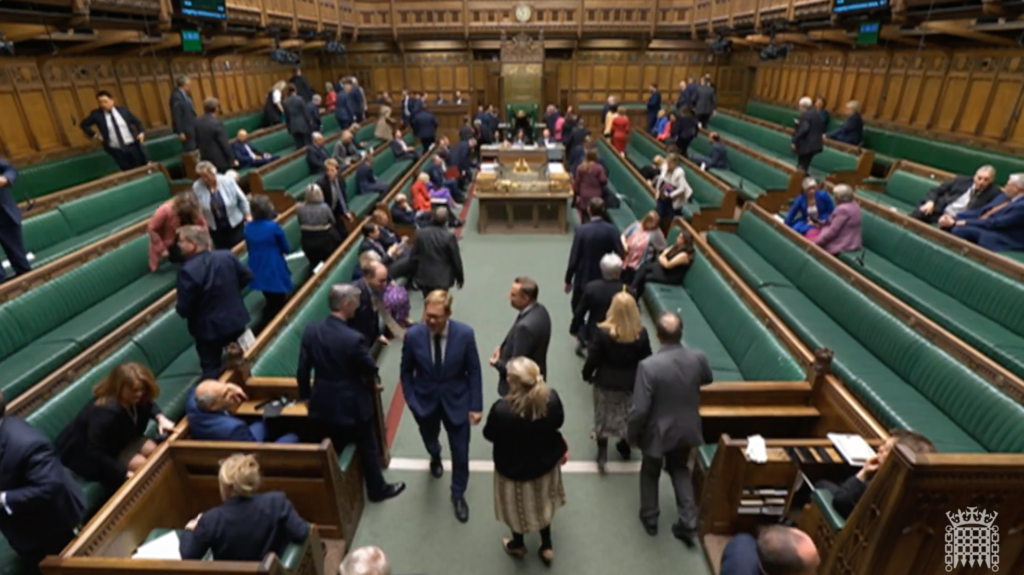What is truancy?
Truancy is the persistent and unauthorised absence from compulsory schooling. A child is generally considered a persistent ‘truant’ if they miss at least 10% of term time. In different parts of the UK, truancy is referred to as ‘dodging’, ‘skiving’, ‘bunking off’, or ‘mitching’.
The unexcused absence rate in all schools in England is currently around 1.4%. This equates to two and half days during the academic year. Truancy is more prevalent in secondary schools than primary schools.

The charity Family Lives has estimated that as many as 64,000 children skip school each day in the UK.
Legal requirements
Under the 1996 Education Act, parents have a duty to ensure that children who are of compulsory school age receive an education. Schools are required to maintain an Attendance Register, and those who fail to attend are recorded as absent.
Absences are categorized as authorised or unauthorised. Authorised absences typically cover illness, study level, medical or dental appointments, and where the parent has obtained advanced permission from a head teacher.


Should a child be absent without authorisation, then their parent is guilty of an offence. This is a strict liability offence – all that needs to be shown is a failure to attend. Schools have a safeguarding duty, under the 2002 Education Act to investigate any unexplained absences, and to inform the Local Authority of pupils who regularly miss school. In more serious and regular cases, the Education Welfare Officer of the local council then typically tries to work with parents to resolve issues around missing school.
Local councils and schools can use various legal powers if a child is missing school without a good reason. These can involve a parenting order, an education supervision order, or a school attendance order.
When a pupil has an unauthorised absence, parents may also be liable to a fixed penalty notice, issued by the headteacher or the local authority. The standard fixed penalty notice comes with a fine of £60, potentially doubling if not paid with 21 or 28 days.
In the case of a habitual truant , the Local Authority may take action which could lead to prosecution in the Magistrates Court. Prosecution in the courts can result in a fine of up to £2,500.
Being late for school can also constitute an unauthorised absence.
In the May 2022 Queen’s Speech, the government announced details of its news Schools Bill. This Bill planned a crackdown on school attendance through the introduction of ‘children not in school registers’.
Costs of truancy
A natural consequence of missed school is limited academic achievement and disengagement with learning. Truants quickly fall behind on schoolwork and face subsequent struggles in following the curriculum.
In 2002, the National Audit Office found that only 13% of persistent truants aged 15-16 achieved five or more GCSEs at grades A-C. Among non-truants, this figure was 60%.
Persistent absenteeism has also been linked to a range of social issues such as criminal activity, teenage pregnancy, and inclinations towards alcohol, smoking and recreational drugs. Later in life, truants are more likely to suffer from unemployment and social isolation. In this respect, poor attendance is said to fuel long-term negative implications for both the individual and wider society.
New Philanthropy Capital have previously suggested that the overall cost of UK truancy was as much as £800 million per annum. This figure accounts for lost future earnings, increased health costs later in life, and the greater likelihood of becoming embroiled with the criminal justice system.
Causes of truancy
Persistent absenteeism can generally be traced back to issues relating to the child, the child’s peer-relationships, the child’s home life, or the school environment.
Child-centred reasons for truancy often stem from low self-esteem, learning difficulties, or mental health problems. The National Behaviour and Attendance Review found that attendance issues are more likely to arise among pupils with low literary or numeracy levels.
Anxiety and low mood are perpetuated by bullying and abuse at school. Persistent bullying can have detrimental impacts on a child’s confidence and self-worth, leading them to disengage further from the school environment. In these situations, the situation can evolve into a self-perpetuating cycle: children suffering from learning impediments or abuse will be less inclined to attend. They are therefore more likely to fall behind on work and suffer greater anxiety as a result. Bullying-induced truancy is thought to be more prevalent among children with special needs and members of the LBGTQ+ community.
A child’s domestic situation is a leading cause of poor school attendance. Factors such as neglect and abuse, domestic violence, and drug or alcohol misuse at home have all been associated with missed schooling. Poor family health and subsequent caring responsibilities are likewise seen as a significant threat to a child’s education.
Local Education Authority data suggests that certain schools record much higher rates of absenteeism than others. This may be a result of poor communication with parents, low student satisfaction rates, and limited measures being in place to prevent absence, such as the appointment of education welfare officers.
Statistics would though seem to suggest that truancy is not purely a function of the socio-economic composition of an area. In 2016, Bath and North East Somerset, one of England’s wealthiest local authorities in terms of deprivation, had one of the highest levels of truancy.
Policies to combat unauthorised absence
A number of policies have been pursued in relation to supporting school attendance.
Fines
Fixed Penalty Notices are typically £60. In order to address the issue of children not being in the classroom, the government’s ‘behaviour tsar’ previously suggested imposing fines of up to £100 on all parents of truants.
Critics of monetary based penalty systems have though suggested that imposing significant fines adds financial pressure onto the lower-income families, where persistent absence is often amongst the highest. Where parents are already struggling financially, this form of discipline is said to risk disengaging them further with the UK education system. It has been noted that a large number of school fines go unpaid.
Truancy Sweeps
Alternative policies acting to reduce unauthorised absence include national ‘truancy sweeps’. These are conducted twice annually by teams comprising the police, welfare services, and social support workers.
During these ‘sweeps’, teams patrol public areas such as high streets and shopping malls during school hours in search of truants. These schemes have proven effective at identifying unaccompanied children, who are then reported to schools. It is said that 85% of local authorities participate in these self styled ‘supermarket sweeps’.
During previous such sweeps as many as 10,000 children have been stopped over a three-week period. However it has been found that over half of the children stopped were accompanied by an adult. This raised concerns around the responsibility of parents in ensuring higher levels of school attendance.
Truancy Officers
Increasingly schools are recruiting education welfare officers to oversee the attendance of truants. These officers are assigned to pupils almost as ‘surrogate parents’ during the school week. The welfare officers ensure that a child is ready for school each morning, before accompanying them to the school gate.
Education welfare officers are most commonly used by households who struggle to oversee complete childcare responsibilities without additional support. Such parents may also be granted a ‘parenting order’, which are sanctioned by local education authorities. These are court orders aimed at addressing and reducing accountability for antisocial behaviour committed by truants. Recipients of parenting orders are obliged to attend compulsory parenting programmes.
Holidays during Term
In 2013, the Conservative and Liberal Democrat coalition government tightened the existing rules to remove references to family holidays and extended leave. Previously, a headteacher could grant a leave of absence for the purpose of a family holiday during term time in ‘special circumstances’ of up to ten days per year.
Since the changes, head teachers may not grant a leave of absence during term-time unless there are exceptional circumstances. Refusal by the head teacher has become the default position.
Following this 2013 change, the number of penalty notices issued for missed schooling has increased considerably from 50,000 in 2013 to 223,000 in 2017-18. The new penalty regime is thought to have had some effect, and the number of pupils missing holidays due to family holidays is said to have dropped.

In 2017, the Supreme Court ruled against a term time trip to DisneyLand.
The penalty notice regime relating to fining parents has subsequently been strengthened in law following a 2017 Supreme Court decision which ruled against a man from the Isle of Wight who had taken his daughter to visit Disney World in Florida during term time.
Quotes
“Where children aren’t in school without good reason or don’t want to be in school something has gone substantially wrong and needs fixing”….”I will continue to prioritise taking action to make sure children have the opportunity to spend time in class with inspirational teachers and good friends – simply because it is the single most powerful tool at our disposal to make sure every child fulfils their potential”. – Education Secretary Nadhim Zahawi.
“Children who miss school, miss out as adults.” – Schools Minister Nick Gibb, 2012
“Schools are aware of the consequences of poor attendance on their pupils’ attainment. Some schools go to great lengths to tackle attendance issues and to see the absence rates decreasing is very promising. But as these figures show there is yet more work to be done to reduce the number of pupils who are still persistently absent.” – The Government’s Expert Adviser on behaviour, Charlie Taylor, 2012
Statistics
On any given day, it is estimated that 64,000 children will skip school without permission. (Family Lives, 2011)
Statistics showed that 67% of truancy-related calls were related to children aged 13-15. Just 2% of the organisation’s truancy related calls concerned children aged 4-9, and 9% concerned children aged 10-12. (Parentline)
Just 35% of pupils who miss a month or more of lessons in primary or secondary school each year manage to achieve five GCSEs at grade C or above, including English and maths.(YouGov, 2012)


























